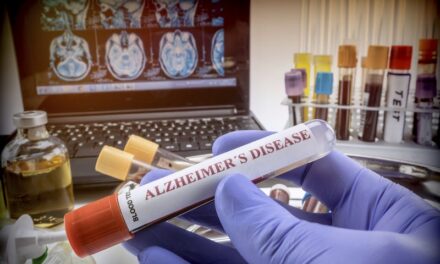The U.S. Food and Drug Administration (FDA) has granted Roche Breakthrough Device Designation for its Elecsys Amyloid Plasma Panel, a new solution designed to enable Alzheimer’s disease to be detected earlier.
The Elecsys Amyloid Plasma Panel test detects and measures Alzheimer’s disease biomarkers in blood plasma to indicate the need for further confirmatory testing for Alzheimer’s disease.
Alzheimer’s disease is the most common form of dementia. Dementia affects more than 55 million people worldwide with more than 10 million new cases each year.1 Barriers to early and accurate diagnosis of Alzheimer’s disease exist across the globe–up to 3 out of 4 people living with symptoms of Alzheimer’s disease have not been diagnosed2, and those who have received a diagnosis, on average waited 2.8 years.
Currently, the diagnosis of Alzheimer’s disease is largely based on clinical symptoms, including cognitive assessment, with a significant number of patients diagnosed when their disease has already advanced. The Elecsys Amyloid Plasma Panel is a qualitative test that combines the result of the phosphorylated Tau (pTau) 181 protein assay and apolipoprotein (APOE) E4 assay in human plasma. Elevations in pTau occur in early stages of Alzheimer’s, while the presence of APOE E4 constitutes the most common genetic risk factor for Alzheimer’s disease. Patients testing negative with the Elecsys Amyloid Plasma Panel are unlikely to be amyloid positive and should be investigated for other causes of cognitive decline.
The Elecsys Amyloid Plasma Panel has thus the potential to ensure better identification of patients that require further confirmatory testing. This could be done via PET scan or cerebrospinal fluid (CSF) testing, supporting a more timely and accessible diagnosis.
Roche has also received a Breakthrough Device Designation for the Elecsys ß-Amyloid (1-42) CSF and Elecsys Phospho-Tau (181P) CSF in vitro diagnostic immunoassays measuring ß-Amyloid (1-42) and Phospho-Tau concentrations in cerebrospinal fluid (CSF) in adult patients with cognitive impairment who are being evaluated for Alzheimer’s disease (AD) or other causes of dementia.
References
- “Dementia.” World Health Organization, World Health Organization, 2 Sept. 2021, https://www.who.int/news-room/fact-sheets/detail/dementia#:~:text=Rates%20of%20dementia,and%20139%20million%20in%202050.
- Alzheimer’s Disease International. “Adi – over 41 Million Cases of Dementia Go Undiagnosed across the Globe – World Alzheimer Report Reveals.” Alzheimer’s Disease International (ADI), 21 Sept. 2021, https://www.alzint.org/news-events/news/over-41-million-cases-of-dementia-go-undiagnosed-across-the-globe-world-alzheimer-report-reveals/.




